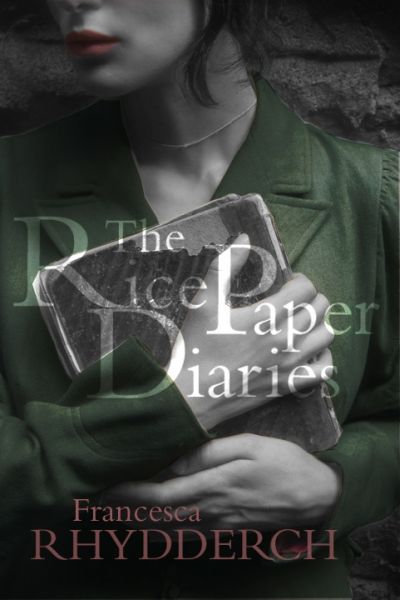Laura Wainwright reviews The Rice Paper Diaries by Francesca Rhydderch, a story about loss, cultural difference, and the meaning of home.
For centuries, people in many parts of Wales have observed the ancient folk rite of the Mari Lwyd on New Year’s Eve. The Mari-Lwyd party traditionally roamed through the local community in the dark, chill hours before midnight, carrying aloft the pale, adorned wooden head or skull of a horse. The Mari Lwyd (or Grey Mare) carriers called at each house in turn, in a sinister and yet celebratory act of communion between the dead and the living, and the fading year and the new. Vernon Watkins famously explored this moment in his ‘Ballad of the Mari Lwyd’ in 1941:
Mari Lwyd, Horse of Frost, Star-horse, and White Horse of
the Sea, is carried to us.
The Dead return.
Those Exiles carry her, [. . .]
They strain towards the fire which fosters and warms the
Living.
The above lines, spoken by Watkins’s ‘Announcer of the Ballad’, explicitly anticipate the confluence of the dead and the living through the language of ‘exile’ and home: the ‘lonely’, haunted, amorphous night encroaches on the solid Welsh hearth, with its warm, welcoming fire. It is, surely, no coincidence that Watkins, an English-speaking Welshman, living and writing in a socially and culturally divided Wales in the midst of the dispersive Second World War, should be drawn to this rite in his poetry, with its dialectical symbolism of home and displacement, belonging and separation.
In Francesca Rhydderch’s brilliant debut novel, The Rice Paper Diaries, set predominantly between 1940 and 1947, Welsh-speaking Elsa Jones also ‘carries’ the Mari Lwyd tradition with her – to fashionable Hong Kong, from New Quay, Cardigan Bay – and, with it, similar notions of home, apartness and exile:
When Elsa, trying to distract herself, told her Hong Kong friends that at home men dressed up for New Year in sheets and ribbons and carried a horse’s skull from house to house [. . .] they forgot their manners and let out huge belly laughs. ‘Yes, they call it the Mari Lwyd, the horse,’ Elsa said, getting quite carried away, enjoying her audience, and they tittered again, and she realised they weren’t laughing with her, and she stopped talking.
In this extract, Elsa attempts to allay her grief over the loss of her baby, shortly after her arrival in Hong Kong, with a reassuring image of home. The Mari Lwyd custom is lost, however, on the British Hong Kong social elite and, instead, Elsa’s revelation delivers a experiential shock of cultural disparity and isolation as profound as that suffered by Jean Rhys’s heroine, Anna Morgan, on her arrival in England from the West Indies in Voyage in the Dark (1934). Indeed, it transpires that the Mari Lwyd is inextricably and horrifyingly connected in Elsa’s memory to her mother’s death, at home, at the turning of the year: ‘and then the door is open and the dressed-up horse looks like a real dead horse, his teeth gnashing in his skull and she is terrified [. . .] and her father is crying out harshly upstairs in a voice she has never heard before.’ The idea of home in this novel, then, is not unlike the Mari Lwyd itself: mutable, unheimlich – that is, uncanny or, paradoxically, ‘unhomely’, to translate Freud’s German literally – and with the capacity, always, both to console and to disturb.

by Francesca Rhydderch
The varying narrative perspectives of The Rice Paper Diaries – distinct sections are devoted to Elsa, her Chinese amah, Lin; her husband, Tommy; and her daughter, Mari (recalling the Mari Lwyd again) – allow Rhydderch to track and explore these themes of home, itinerancy and exile across cultures and through individual, divergent lives. Lin, who has come to Hong Kong to earn money to send home to her family, reflects:
I sat in my cubicle and surveyed the contents of my life [. . .]. I thought to myself, even if I wanted to go home now, where would that be – the Pearl River Delta, Sheung Wan, the Peak? There’s a little of me that has been scattered through them all and taken root there, and to try to cut the shoots that have pushed their way out like sweet potato leaves and bring them together in one harvest would make me someone else entirely. Whoever that person would be, she wouldn’t be me.
Rhydderch slots these narratives intricately together to form a powerful, undaunted and utterly convincing interleaved account of the life-altering impact and enduring personal consequences of the Japanese army’s invasion of Hong Kong in 1941 on the people living on the island – particularly Elsa, Tommy and Mari, who are interned at the Stanley Prisoner of War Camp. The novel itself was, in fact, inspired by the real-life story of the author’s great-aunt, who was captured and imprisoned at Stanley Camp between 1942 and 1945. Tommy’s experiences are recorded in his own harrowing logbook: ‘(Soldiers and Red Cross nurses maimed, raped, killed by Japs, then burned. Ash heap with bones sticking out of it still smoking in the exercise yard: our men or theirs, we don’t know.)’ Mari, on the other hand, grows up knowing little more than life inside the camp; so that when she finally arrives back in New Quay – her ‘home’ in the eyes of her parents, and the subject of so many of her mother’s soothing stories – she finds herself in an unfamiliar, confusing and often disconcerting world. ‘When Nannon [Elsa’s sister in New Quay] says the word ‘home’’, we learn, ‘Mari finds it hard to catch her breath, like the day when Tommy had smacked her.’
Rhydderch’s lucent, easy prose is judiciously alert to the distinctive beauty of place – to blanched, ‘bunched limpits [. . .] like paper cocktail umbrellas’ on the rocks at New Quay, or the sun on a sampan off Kowloon – and yet she is also constantly watchful of the ubiquitous ugly reality of lived experience in the 1940s and beyond: to a man with a cleaver on a Hong Kong road, gutting a fish that is still flapping desperately; to the ‘muddied patches of blood’ and ‘claws and bits of flesh’ left by the rat catcher that stain the streets of New Quay even after the rain; and to the sudden ‘sliver of red racing across [Elsa’s pregnant] stomach’ glimpsed in the ‘metal edge of the light’ above the operating table. Moreover, here, in essence, is a rare, brave and unforgettable novel – a work that in abundant and complex ways, in the words of the Announcer of Watkins’s ‘Ballad of the Mari Lwyd’, gifts us
The living moment.
The dead moment.
Listen.
You might also like…
Gemma Pearson reviews the much anticipated new novel from prolific Welsh language novelist Caryl Lewis, The Jeweller.
Laura Wainwright is a contributor to Wales Arts Review.











